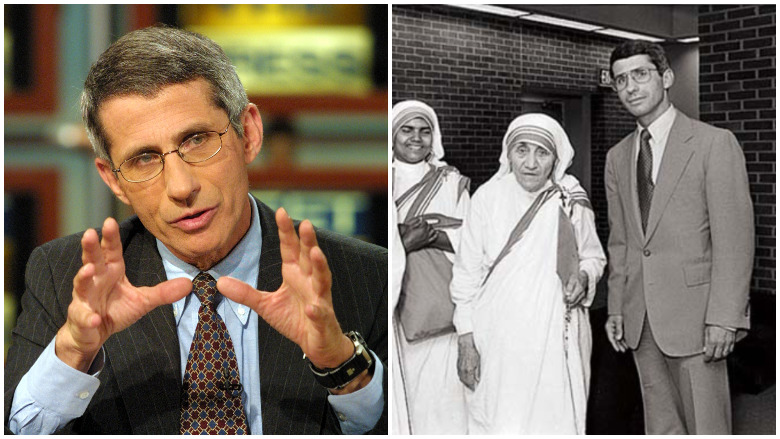
Getty A younger Dr. Fauci
Dr. Anthony Fauci has emerged as a household name due to the COVID-19 pandemic, due to his almost daily appearances on our television screens during press briefings at the side of the president. Judging from the buzz on social media, Dr. Fauci has earned a number of female fans.
Here are a few examples:
All the buzz is making some people curious about Dr. Fauci when he was young: What did he do in the earlier stages of his career? You can see photos of a young Fauci throughout this article, including from high school. Glossy prints of Fauci as a young man are even for sale on eBay for $9.99.
Here’s what you need to know:
Dr. Fauci Was Raised in Brooklyn, New York By Parents Who Were of Italian Heritage
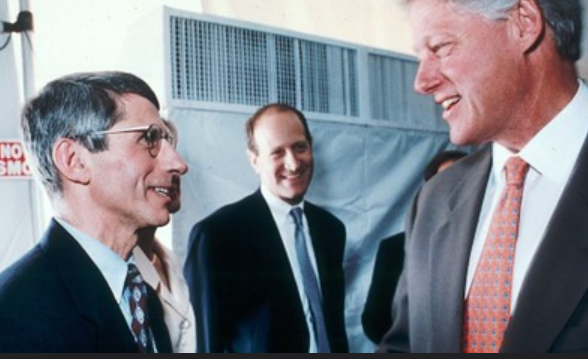
Fauci with Bill Clinton in 1995.
According to Biography.com, Fauci has New York roots and is of Italian heritage. He was born in December 1940 as Anthony Stephen Fauci in Brooklyn, New York.
His parents were Italian-Americans, Eugenia and Stephen Fauci. Dr. Fauci was athletic growing up, playing multiple sports, and he worked at his father’s pharmacy, Biography.com reports.
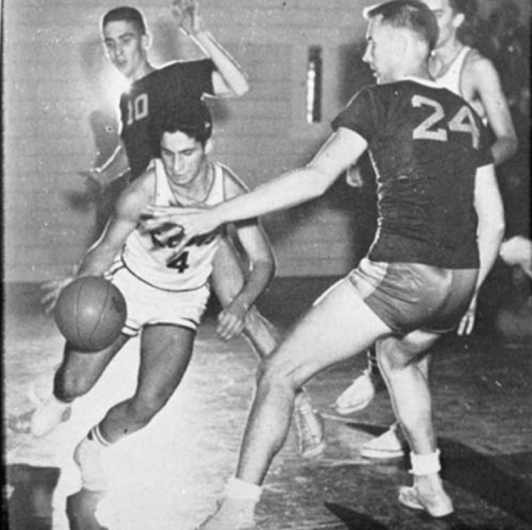
Dr. Fauci in his high school yearbook.
He was basketball team captain at Manhattan’s Regis High School and then attended College of the Holy Cross in Massachusetts in pre-med. He was first in his class at Cornell Medical College in 1996 in New York City and completed residency at New York Hospital Medical Center, according to Biography.com.
He served as chief resident at New York Hospital-Cornell Medical Center from 1970-71.
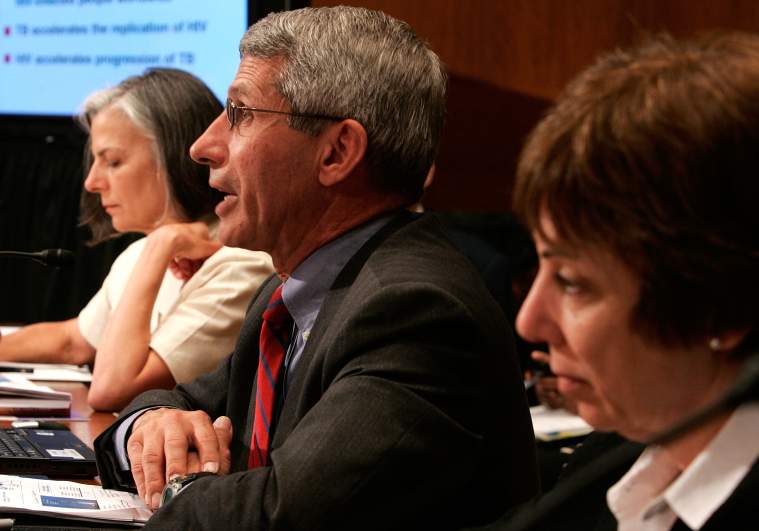
National Institute of Allergy and Infectious Diseases Director Anthony Fauci (C) speaks as Centers for Disease Control and Prevention Director Julie Gerberding (L) and U.S. Customs and Border Protection Deputy Commissioner Deborah Spero (R) listen during a hearing before the Senate Labor, Health and Human Services, Education, and Related Agencies Subcommittee of the Appropriations Committee June 6, 2007 on Capitol Hill in Washington, DC.
He also was instrumental in West Nile Virus, swine flu, anthrax, Ebola, and SARS. He has 45 honorary doctorates, and is married to Christine Grady, chief of the Department of Bioethics at the NIH Clinical Center. They have three daughters.
Dr. Fauci Has Spent Years as Director of the National Institute of Allergy & Infectious Diseases
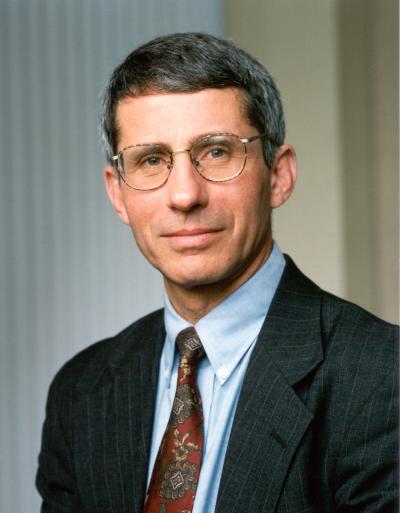
Dr. Anthony Fauci in a photo that ran with a 2005 press release.
Dr. Fauci has had remarkable longevity in his career as director of the National Institute of Allergy and Infectious Diseases since 1984, where he’s tackled viruses from HIV to swine flu.
In 2005, Dr. Fauci spoke at the University of Washington, which ran the above headshot with that press release. “Dr. Anthony Fauci, who has been director of the National Institute of Allergy and Infectious Diseases (NIAID) since 1984, will speak at the UW Health Sciences Center,” the release stated.
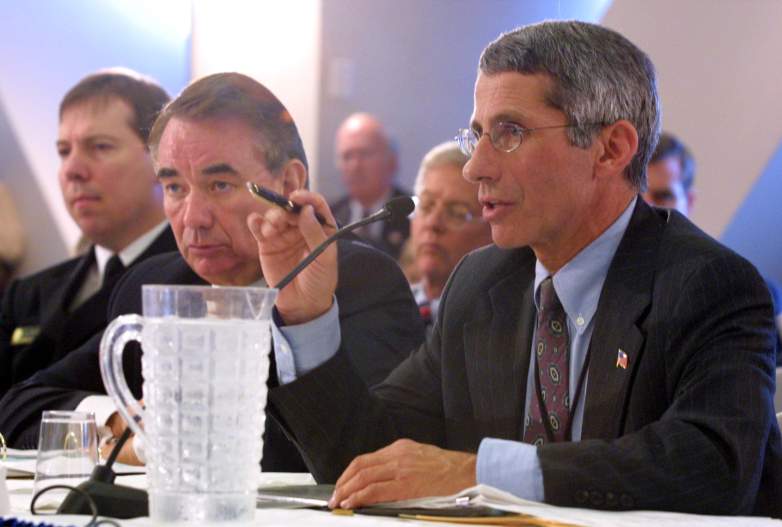
From left, Scott Lillibridge, Special Assistant to Secretary Tommy Thompson for National Security and Bioterrorism; Health and Human Services Secretary Tommy Thompson and Anthony Fauci, Director of National Institute of Allergies & Infectious Diseases, testify during a hearing on “Biological Warfare Defense Vaccine Research and Development Programs” before a House subcommittee on national security, veterans affairs, and international relations October 23, 2001 in Washington, DC.
His topic was “Emerging and Re-Emerging Infectious Diseases: The Perpetual Challenge.” The press release gave this additional information about Fauci’s career at that time:
At NIAID, part of the National Institutes of Health, Fauci oversees an extensive portfolio of basic and applied research to prevent, diagnose and treat infectious and immune-mediated illnesses, including HIV/AIDS and other sexually transmitted diseases, illness from potential agents of bioterrorism, tuberculosis, malaria, autoimmune disorders, asthma and allergies. According to information on the NIAID Web site, Fauci also serves as a key advisor to the White House and the Department of Health and Human Services on global AIDS issues, and on initiatives to bolster medical and public health preparedness against possible bioterrorist attacks.
According to Biography.com, Fauci was instrumental in the fight against HIV when that virus first emerged; he “successfully lobbied for an increase in AIDS research,” the site reports, and advocated better access to experimental drugs.
Fauci remains in that position today. His official biography says, “Dr. Fauci was appointed Director of NIAID in 1984. He oversees an extensive research portfolio of basic and applied research to prevent, diagnose, and treat established infectious diseases such as HIV/AIDS, respiratory infections, diarrheal diseases, tuberculosis and malaria as well as emerging diseases such as Ebola and Zika. NIAID also supports research on transplantation and immune-related illnesses, including autoimmune disorders, asthma and allergies. The NIAID budget for fiscal year 2020 is an estimated $5.9 billion.”
Fauci Is Known for His Work on the Immune System
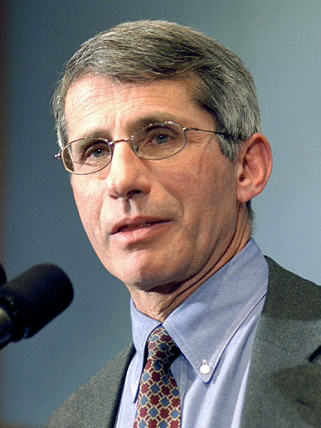
Date: 1/14/2002.
Dr. Anthony Fauci (M.D.), Director of the National Institute of Allergy and Infectious Diseases (National Institute of Health, NIH), speaking at the National Press Club about anthrax and small pox.
Credit: Jim Wallace (Smithsonian Institution)
Dr. Fauci’s official biography says that he “is the longtime chief of the Laboratory of Immunoregulation. He has made many contributions to basic and clinical research on the pathogenesis and treatment of immune-mediated and infectious diseases.”
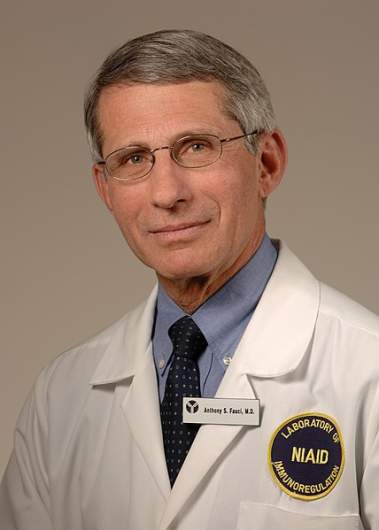
Fauci in 2007.
According to the bio, Dr. Fauci “helped pioneer the field of human immunoregulation by making important basic scientific observations that underpin the current understanding of the regulation of the human immune response. In addition, Dr. Fauci is widely recognized for delineating the precise ways that immunosuppressive agents modulate the human immune response.”
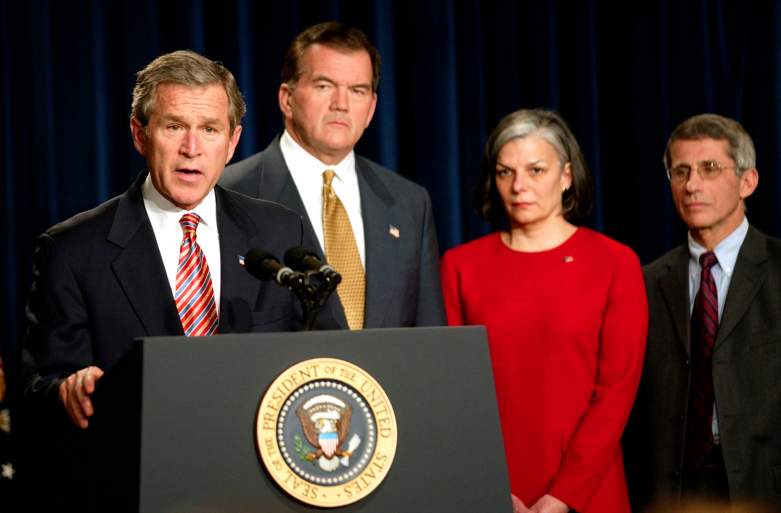
US President George W. Bush (L) makes an announcement with Homeland Security Director-designee Tom Ridge (2nd L), Dr. Julie Gerberding (2nd R) the Director of Centers for Disease Control and Prevention and Dr. Anthony Fauci (R), the Director of National Institute of Allergy and Infectious Diseases that one million troops and health workers will be vaccinated against smallpox during a statement at the White House 13 December 2002 in Washington, DC.
The bio says he “developed effective therapies for formerly fatal inflammatory and immune-mediated diseases such as polyarteritis nodosa, granulomatosis with polyangiitis (formerly Wegener’s granulomatosis), and lymphomatoid granulomatosis. A 1985 Stanford University Arthritis Center Survey of the American Rheumatism Association membership ranked Dr. Fauci’s work on the treatment of polyarteritis nodosa and granulomatosis with polyangiitis among the most important advances in patient management in rheumatology over the previous 20 years.”